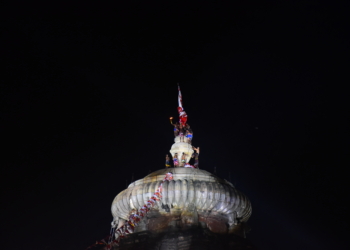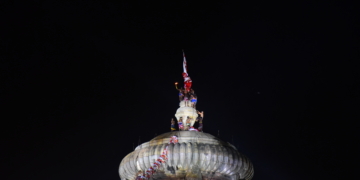In a grave escalation of hostilities, Pakistan attempted to target the Golden Temple in Amritsar with drones and long-range missiles on the night of May 7–8, following India’s decisive Operation Sindoor, according to Major General Kartik C Seshadri, GOC of the Indian Army’s 15th Infantry Division.
India had conducted precision airstrikes on nine terror sites across Pakistan and Pakistan-occupied Kashmir (PoK) on May 7, under Operation Sindoor, in response to the Pahalgam terror attack on April 22 that claimed 26 tourist lives.
Major General Seshadri revealed that Pakistan’s military, lacking legitimate tactical targets, resorted to attempting strikes on symbolic civilian and religious sites.
“Knowing that the Pak Army does not have any legitimate targets, we anticipated they would target Indian military installations, civilian targets including religious places. Of these, the Golden Temple appeared to be the most prominent,” he told ANI.
In anticipation of such retaliation, the Indian Army deployed enhanced modern air defence systems to create a comprehensive protection shield over the Golden Temple.
“On the morning of May 8, Pakistan launched a massive air assault using drones and long-range missiles under the cover of darkness. However, due to our preparedness, all incoming threats were intercepted and neutralized,” said Major General Seshadri. “We were fully prepared since we had anticipated this, and our braveheart and alert army air defence gunners thwarted Pakistan Army’s nefarious designs and shot down all drones and missiles targeted at the Golden Temple. Thus, not allowing even a scratch to come on our holy Golden Temple,” the officer added.
The attempt to target one of India’s most revered religious landmarks, the Harmandir Sahib (Golden Temple), has drawn sharp condemnation and increased calls for international scrutiny of Pakistan’s military conduct.
This marks one of the most provocative moves by Pakistan in recent years, aiming not at battlefield objectives but cultural and religious symbols, raising fears of deliberate escalation and sectarian provocation.





























